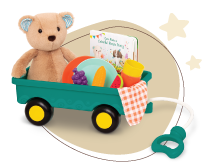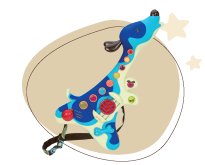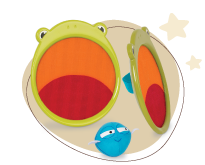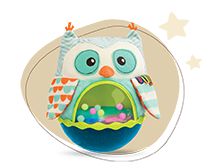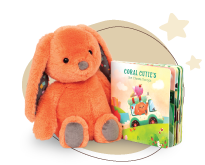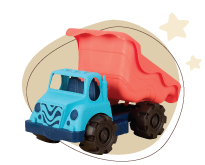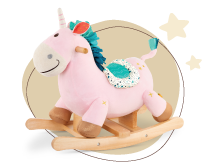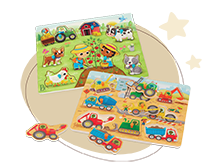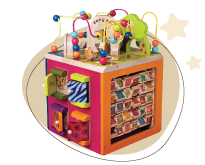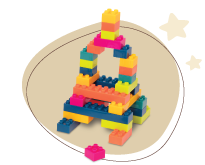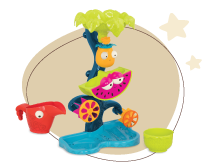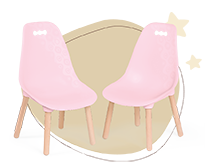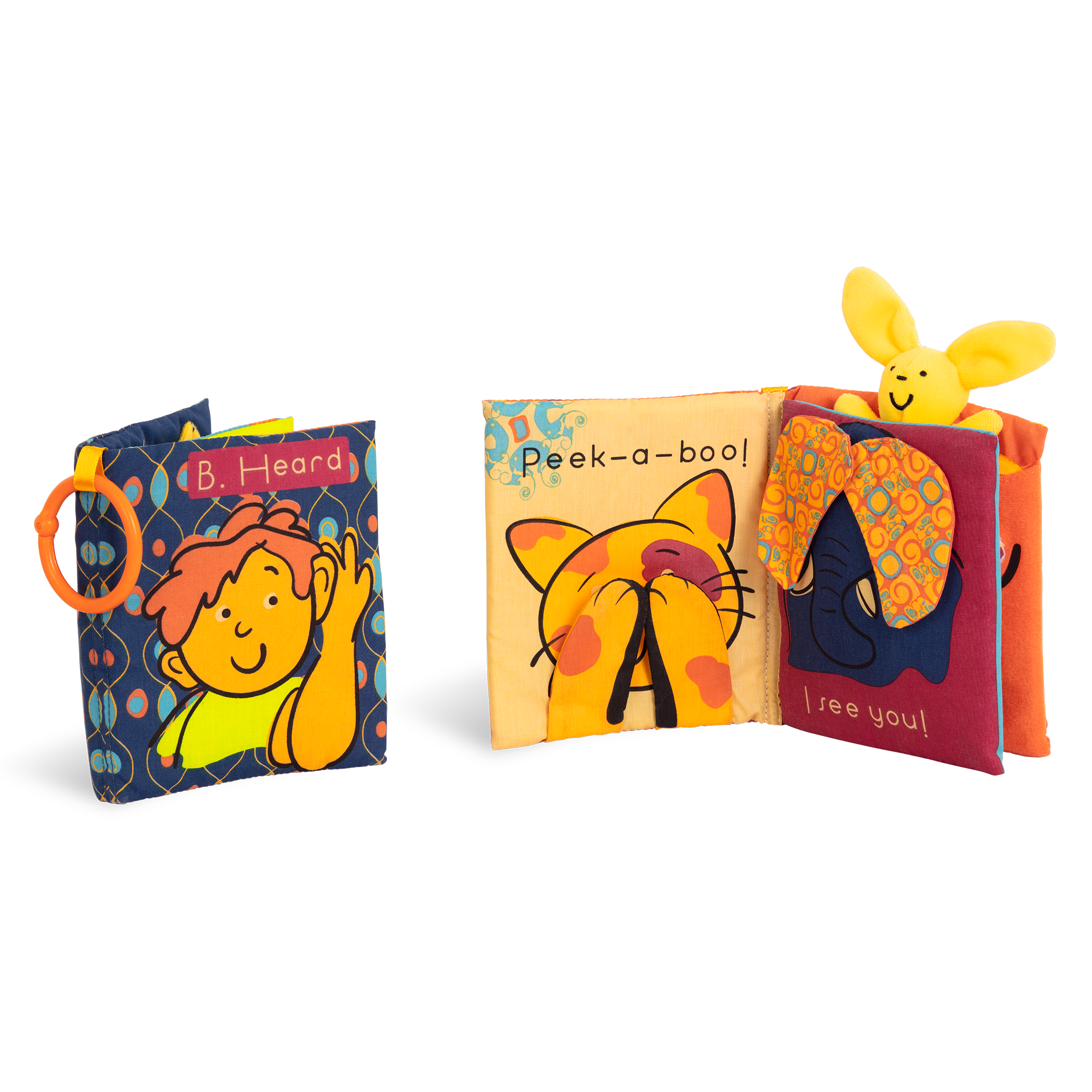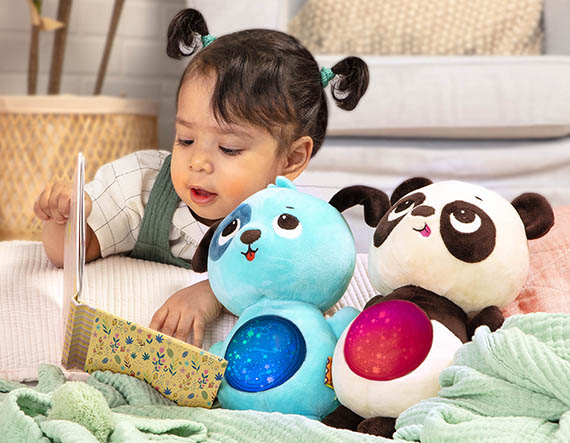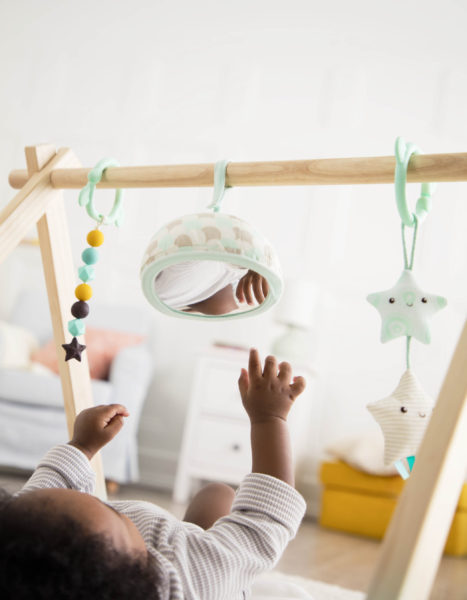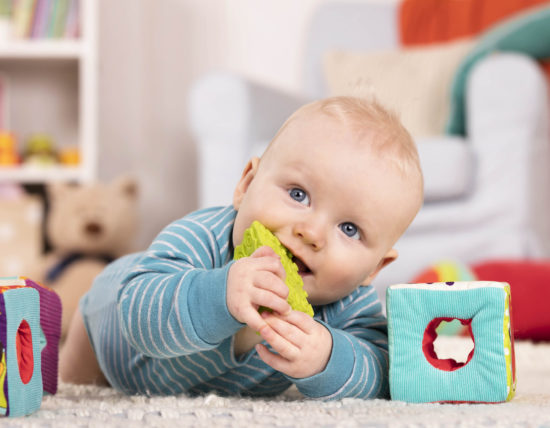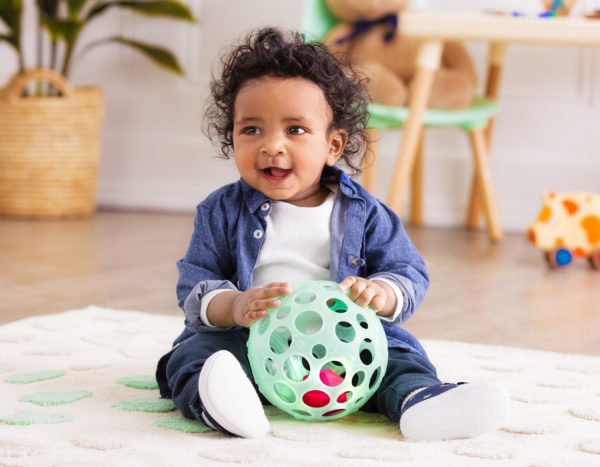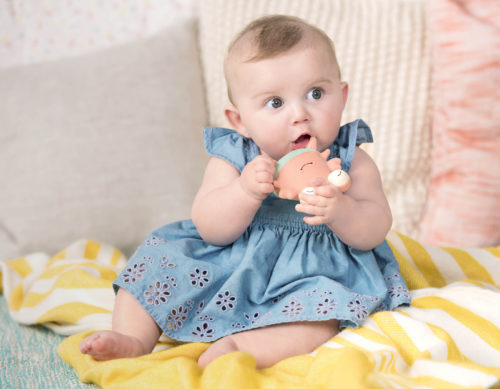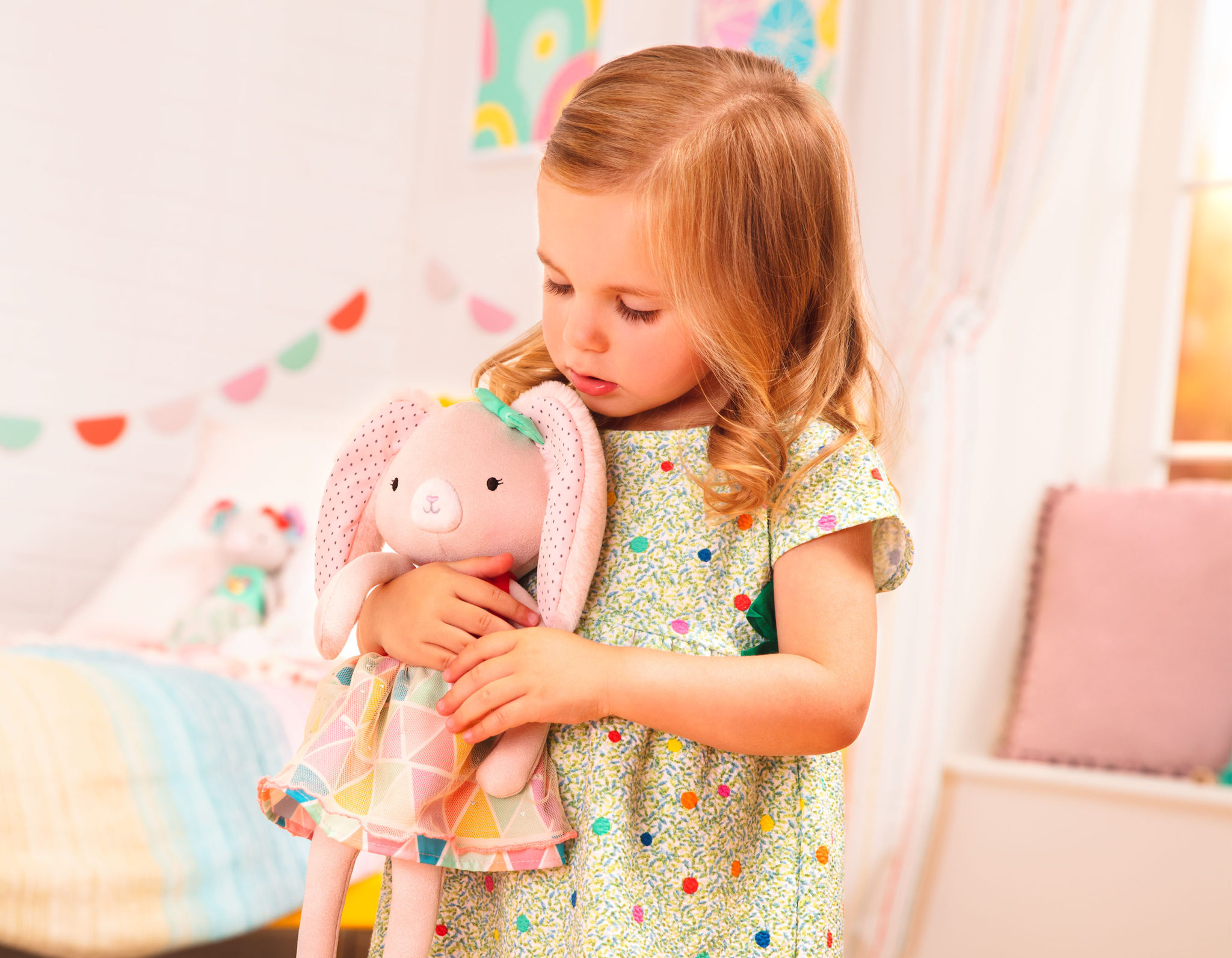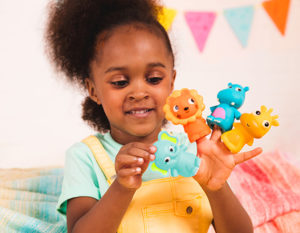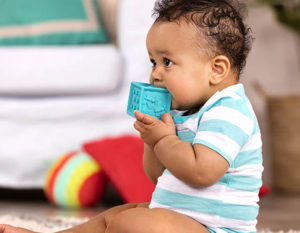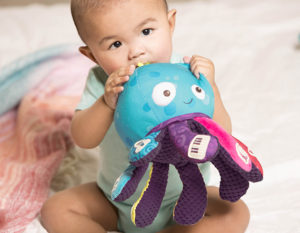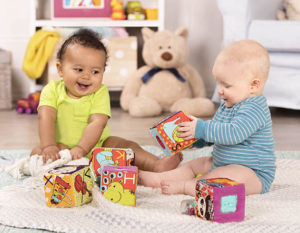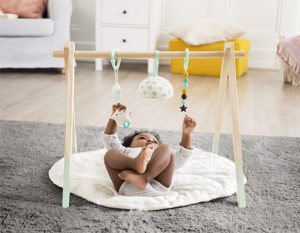We all want to do everything we can to stimulate the cognitive development of our little ones as they mature from infancy to childhood. There are many steps along the way, and each one can be acknowledged and accentuated with whatever magical parenting and even grandparenting touch we can provide.
We at B. toys always strive to give parents information that helps them along the wondrous journey of infancy, toddlerhood, and childhood — and this is no different. Here are 10 ideas that include activities, examples of baby toys, and a lot of other things to stimulate your little one’s brain. In turn, these will make their infancy productive, nurturing, and fulfilling for everyone around!
1. It Starts Before Birth
The exciting journey of parenthood starts before your little one is even born. Moms who are expecting tend to understand that they need to do everything possible to provide their child with a protective, healthy, and happy womb. This means that Mom should be aware of and attend to her own physical and mental needs! Also helpful is the practice of playing music and positively talking to their baby as often as possible. All of this will help with cognitive development!
Simply getting into the habit of talking to your tiny tot before the big arrival date will prepare you to do so afterwards — and it’s a lot of fun! When shopping for baby toys, for example, ask your little one for an opinion. Small things like that can make a big difference!
2. Speech Is an Ongoing Process
After your special one arrives in the world, you’re going to have a lot of things happening at once. Fortunately, what you can do to encourage cognitive development with regards to the ability to speak comes naturally! Talking to your child in what has commonly been described as the language of “baby talk” actually does make a positive difference in the ability to learn language and verbal skills.
When your new family member speaks during that first year, it’ll usually be in the form of a coo or a squawk – something that expresses curiosity or any other number of emotions – and it’s a good idea to respond in-kind with the same sort of baby talk! Feel free to use high-pitched tones and draw your words out slowly, all while looking at your child and smiling. You’ll likely see their faces light up with delight as they listen to your voice and learn!
3. Help Develop Motor Skills
Is there anything more adorable than watching an infant swing those little arms and legs around, trying to get something done? There’s usually more going on there than just the overwhelming cuteness of the situation, as the child is learning how to move their body and the basic motor skills that they will need throughout life. As is the case with every stage of cognitive development, parents should interact with their little one physically, showing them how to move those arms and legs.
As your bundle of joy gets a lil’ older – say, 6 months and a bit beyond – it’ll also be time to incorporate some baby toys that help advance the development of those motor skills. Blocks like our aBc Block Party will get your child’s hands and brain moving quickly as those blocks get stacked up, knocked down, and bounced around.
4. Provide a Personal Touch
We all want to hug and hold our children all day long! They are the loves of our lives and everything we ever hoped they would be before they were born. Following those instincts is surely a good idea for everyone in a caregiving role, as study after study has shown that the more an infant is gently touched, the quicker cognitive development occurs as they get older.
5. Respond to Cries
Once again, anyone who’s taking care of a baby is going to respond instinctively when that little one cries. Babies cry for a reason, and that list of reasons is finite. Generally, babies will cry because they are experiencing one of the following:
- I’m hungry.
- It’s time for a diaper change.
- It’s too cold.
- It’s too warm.
- I’m awake now and I would like to see my family.
When you respond to cries during infancy with a comforting, soothing tone, that can help cognitive development with regards to emotions, making connections with other people, and generally developing a trust with those who are there every day.
6. Engage in Playtime
We love to watch our children during playtime, which is often tummy time during the early stages of infancy. To see someone so new to the world explore it so precociously is touching beyond belief! For busy parents, it’s also a time when it’s tempting to keep one eye on your child and get things done like emptying the diaper bucket, doing laundry, preparing bottles and the like. But while it’s good to multitask and to be productive, playtime is great for engaging with your child and building a strong bond. Becoming their partner in play can show them that they are valued and important!
7. Get Your Singing Voice Ready
Music is actually very important with regards to cognitive development! Some have suggested that parents should play music even before birth, as it will introduce their baby to sounds and get that brain moving. After the big arrival, songs are almost always a good way to keep their mind active and stimulated!
In addition to playing music, you can also sing along and even move your body to the rhythm. This will help your child make the connection between music and movement, and it will encourage additional learning. There was an interesting study conducted by the University of Washington where the goal was to learn whether music, rhythm, and singing accelerated baby brain development. Two groups of children and caregivers were studied, and both groups were given toy cars, blocks and other objects requiring physical coordination. One group had music while the other did not, and the babies in the music group learned faster!
8. Consistency Matters
Even infants are studying the world in a way that includes how people respond to their own actions. Therefore, when your little one does something to get your attention – and this will happen more often than most would think – our tip is to react positively and consistently!
If you do that, then your child will learn to trust your responses and continue to learn about other things instead of wondering what’s going to happen in response to something. For instance, when your child coos after naptime, grab their baby toys and play! It’ll make for a fun and reinforcing environment.
9. Mealtime is Learning Time
Every baby is different, but generally speaking, your little one should be ready to start enjoying baby food in addition to breast milk or formula about halfway through that first year of life. When that time comes around, we suggest you introduce the different foods in a cheerful manner, as that will lead to a positive association with eating good and yummy foods!
As your child gets the hang of it, allow for some self-feeding, even if it’s a bit messier than you’d hope. It teaches a lot of things with regards to cognitive development, including motor skills. Not to mention, it’s a lot of fun for the child and it’s guaranteed to present you with boundless photo opportunities!
10. Baby Toys Are Magical
Finally, another great vehicle towards positive cognitive development is baby toys! Toys make everything fun, and each one presents an entirely new opportunity for exploration. If you’re ready to introduce toys to your baby that will help your child’s cognitive development, we invite you to explore our creations and see what resonates with you. We look forward to helping you and your little one move through a happy life together!
